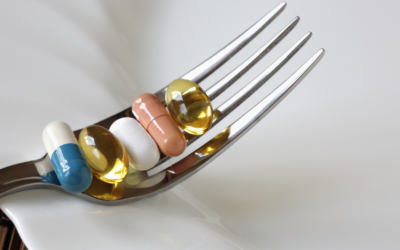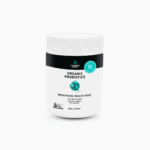When I first heard the term Bored Immune System, I was absolutely shocked that anyone would think that an immune system could become bored, I actually thought that the speaker I was listening to had just made it up. The speaker was a professor of immunology answering a question about the increase in allergy rates in Australia. He believed it was because the immune system becomes bored.
Definition of a Bored Immune System; When the environment that a person lives in becomes so clean that the immune system becomes bored and creates immunity to natural substances such as pollen, food and even itself.
Apparently there is an inverse relationship between the level of hygiene and the incidence of allergies and autoimmune diseases. The more sterile the environment a child lives in, the higher the risk a child will develop allergies or an immune problem in their lifetime.
Regions in which the sanitary conditions have remained stable have also maintained a constant level of allergies and inflammatory diseases. Allergies and other autoimmune diseases such as Type 1 diabetes and multiple sclerosis are the result of our immune system turning against us.
I questioned this term straight away as while we can keep our environment fairly clean we cannot, unless we live in an enclosed bubble keep it clean from bacteria, virus’s, small vermin and parasites. Some of these are air born some are passed from other humans, some are within us, some are in our beds, carpets, floors or found on our pets. In fact there are just as many bacteria in our body as there are cells and that equates to trillions.
When you understand the intelligence of the body and as long as you give it the right resources and don’t interfere, then the body knows exactly what to do, it has been doing it without the knowledge of science for 1000’s of generations. But we interfere by treating pregnancy as a disease rather then something natural, creating hazards at birth, injecting immediately with Vitamin K and so called immune system “enhancers” as well as fever depressors and pain killers. The body never really gets a chance to do something for itself before a foreign pill or chemical is thrown into the system.
It is my belief and many vitalists belief that these modern medical practices are what cause the intelligence of the body to be depressed resulting in the vast amount of allergies and auto immune diseases that now exist. At the end of this article I have made a list of current autoimmune diseases.
The correlation of a sanitised environment with an increase in allergies has too many other paramaters to take into account, including our very over medicated society that consumes a diet of modified, processed, chemical foods filled toxins with many being genetically modified.
I find blaming the body and the boredom of the immune system an absolute insult to the intelligence of our bodies.
My Dad was a pharmacist who became a Chiropractor in the late 1950’s. When I was born in 1960 he had a wonderful appreciation for the body. He decided that unless it was a life threatening situation I would be given no medications. He believed that the body needed practice with immunity, with pain and with all the things life throws at you. So I had lots of practice as I was never given any antibiotics, fever depressors or pain killers as I was growing up. When I became pregnant with my first child I was given all the usual blood tests and a statement on the tests said that I had been immunised against german measles. Which I had not. But what I had without even knowing it is that I was exposed to Rubella and thus received the antibodies without succumbing to the disease.
Over the past 5 years I have been giving blood on a regular basis. A couple of years ago the blood bank started to screen for malaria. I was sent a two page letter from the department of health letting me know that I had the antibody (I thought it was a parasite but that is what they termed it) to malaria and that I would not be able to give blood again, but they could take my plasma. As far as I know I have never experienced the symptoms of malaria but I have obviously been exposed to it and have the immunity to the disease.
Dr Hans Ulrich Abonico head physician for the department of complementary medicine in the hospital of Lagnau, Switzerland believes that the immune system does need training. From birth the body is in constant interaction with its environment which either supports or attacks it, although if a newborn infant is breast fed then the baby will receive a certain immune protection through the antibodies of the mother he also believes that childhood illnesses are imperative for building an intelligent strong immune system.
In 1999, a Swedish physician, in collaboration with the Karolinska University Hospital, Stockholm, researched children from three schools, including one Steiner school. Hair and blood samples showed that 13% of the Steiner students had allergy problems as opposed to 25% of the children in the other schools. Possible influencing factors were listed as: Steiner students often receive fewer antibiotics and fever depressants, they are allowed to have normal childhood illnesses, are breast-fed longer and have a diet based on real foods.
Dr. Delespesse, who is the director of the Laboratory for Allergy Research at the Centre hospitalier de l’Université de Montréal, says that the bacteria in our digestive system are essential to digestion and also serve to educate our immune system. They teach it how to react to strange substances. This remains a key in the development of a child’s immune system. Non breast fed babies, antiboitics, preservatives in food and sterilised foods as well as other medications destroy the bacteria in the digestive system thus decreasing the efficiency and function of the immune system.
Dr. Delespesse recommends probiotics to enrich our intestinal flora. Probiotics are intestinal bacteria that have a beneficial impact on health. They’ve been used for decades to make yogurt, sauerkraut, kefir and many other cultural fermented foods. Breast milk is filled with specific probiotics. Probiotics have a proven effect on treating diarrhea, and studies are increasingly concluding similar benefits for the immune system and allergies.
“Consuming probiotics during pregnancy could help reduce allergies in the child,” says Dr. Delespesse. “They are not a miracle remedy, yet they are one of many elements that improve diet and health.”
Recent research in Germany attempted to prove allergies more prevalent in polluted industrial areas. The result showed the opposite. Allergies were three times higher in pristine, nonindustrial areas. Further studies indicated a prevalence for allergies in well-to-do households although the incidence was lower if children had normal childhood illnesses such as measles and chicken pox. While classical childhood illnesses are being eradicated through vaccination, youngsters suffer increasingly from adult illnesses such as allergies and psychosomatic disturbances.
As the child develops externally, including standing, coordination, walking and speech, a parallel development takes place in the individuals immune system. The thymus gland, which decreases in later life, most clearly reveals this development. Its function mediates perception and digestion, providing a basis for differentiating between “foreign” and “self.” A very important concept that the body must know in order to prevent autoimmune diseases and allergies.
Today, the thymus is seen as a “school for lymphocytes,” where they learn to recognise foreign as opposed to body protein. Lymphocytes even store memory for subsequent encounters with the environment. Recognition, memory and response—these concepts belong to the learning process.
Continuous under or over stimulation of the immune system and the nerve-sense system can cause long-term weakness and damage. The dynamic balance between challenge and assimilation is key.
The encounter of the organism with the environment must be appropriate to the age of the child, and built in healthy stages. This includes the childhood illnesses which represent unavoidable prerequisites for developing a strong and mature immune system. This concept is not recognised by the current scientific and medical community, their idea is to eradicate child hood diseases thus creating an immune system that does not have the challenges it needs and the intelligence to know foreign from self.
The bored immune system (BIS) was bought up in a debate at the Woodford Folk Festival on Vaccination. The question asked was whether the multiple vaccines given to very young children may have something to do with the exponential increase in allergies. The professor of immunology totally disagreed but blamed the BIS. If you are interested in looking into this further I suggest you watch the following video of Dr Suzanne Humphries, a practicing nephrologist (kidney physician) claiming the vaccine industry isn’t giving people both sides of the story, and parents need to get informed before subjecting their children to vaccines that can potentially cause serious harm or even death.
A List of Autoimmune Diseases (where the body doesn’t know the difference between self and foreign and therefore attacks its own body)
Autoimmune acute disseminated encephalomyelitis (ADEM)
Autoimmune Alzheimers
Autoimmune alopecia areata
Autoimmune ankylosing spondylitis
Autoimmune aneurysms
Autoimmune arthritis
Autoimmune antiphospholipid Syndrome
Autoimmune Addison’s Disease
Autoimmune Hemolytic Anemia
Autoimmune Inner Ear Disease Also known as Meniers Disease
Autoimmune Lymphoproliferative Syndrome (ALPS)
Autoimmune Thrombocytopenic Purpura (ATP) Autoimmune autism or Autistic disorder
PANDAS. Autoimmune hemolytic anemia
Autoimmune hepatitis
Autoimmune Oophoritis
Autoimmune Behçet’s disease.
Autoimmune Bullous Pemphigoid
Autoimmune Cardiomyopathy
Autoimmune CREST disease
Autoimmune Crohn’s disease
Autoimmune Chronic Fatigue Syndrome
Autoimmune Dermatomyositis-
Autoimmune Diabetes mellitus, type 1
Autoimmune Epilepsy Autoimmune
Autoimmune Kawasaki’s Disease
Autoimmune Glomerulonephritis
Autoimmune Graves’ disease
Autoimmune Goodpasture’s syndrome
Autoimmune Guillain-Barré syndrome
Autoimmune Inflammatory bowel disease–ulcerative colitis and Crohn’s disease.
Autoimmune Lupus nephritis
Autoimmune Multiple sclerosis
Autoimmune Myasthenia gravis
Autoimmune Myocarditis
Autoimmune Parkinson diseases.
Autoimmune PANDAS Pediatrics autoimmune neuropsychiatry disorders
Autoimmune Pemphigus/pemphigoid
Autoimmune Pernicious anemia
Autoimmune Polyarteritis nodosa
Autoimmune Polymyositis
Autoimmune Primary biliary cirrhosis
Autoimmune Psoriasis
Autoimmune Raynards
Autoimmune Rheumatic fever
Autoimmune Rheumatoid arthritis.
Autoimmune Sarcoidosis–
Autoimmune Scleroderma
Autoimmune sjögren’s syndrome
Autoimmune Systemic lupus erythematosus
Autoimmune Thyroiditis
Autoimmune Ulcerative colitis
Autoimmune Uveitis
Autoimmune Vitiligo
Autoimmune Wegener’s granulomatosis
Autoimmune Wilsons Disease. More on autoimmune diseases.
reference – http://www.cidpusa.org/autoimmune%20diseases).html







0 Comments